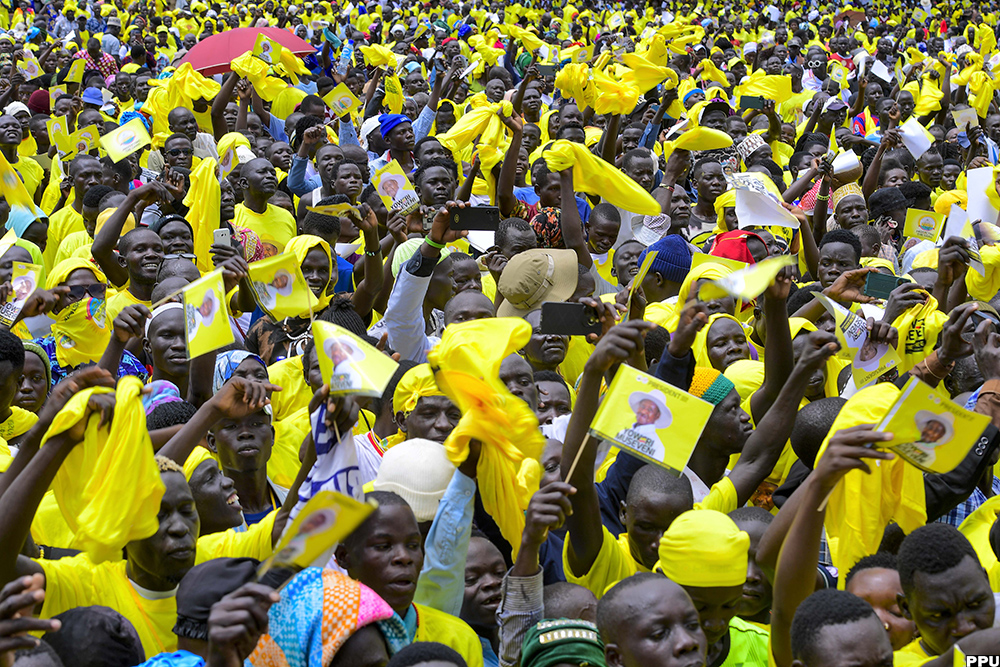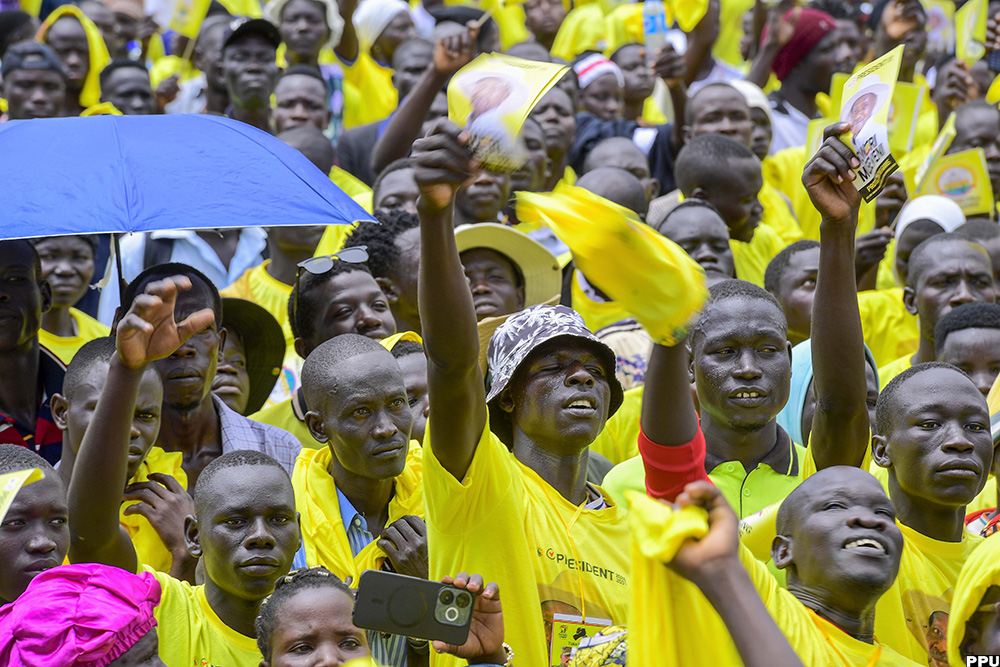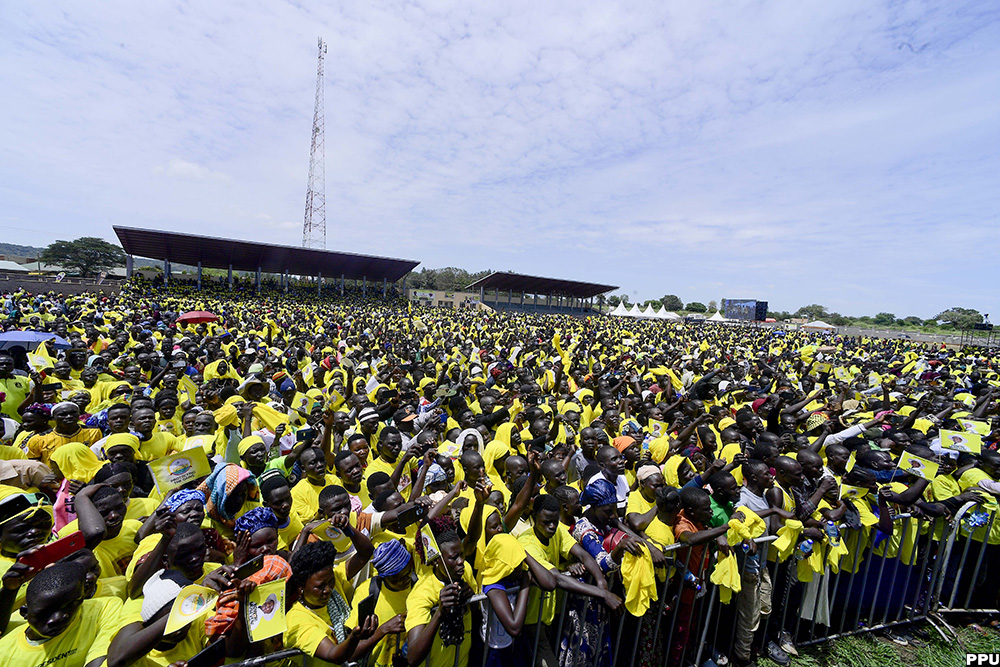Why NRM wins in first round of voting—Museveni
“In the past, we had a party for the Catholics, a party for Protestants and for Baganda. That is what was the problem at independence, and that is why no party could get 50% of the vote in 1962 elections,”
Why NRM wins in first round of voting—Museveni
By Umaru Kashaka
Journalists @New Vision
___________________
President Yoweri Museveni says the gains his National Resistance Movement (NRM) party has been making since 1986 have been enabling it to win the majority of votes in the first round of the presidential elections.
He highlighted the seven major contributions NRM has made to Uganda and Africa as a whole during his campaign rally for the 2026 general election at the scenic Arua City Golf Course on October 13, 2025.
These contributions include ushering in an era of peace, fostering development, wealth creation initiatives, jobs, service delivery, markets, as well as unity and political stability.
“The first contribution of NRM to Uganda is peace because of the ideology of opposing sectarianism of religion and tribe, and marginalising women and children. That is why we win the majority votes in the first round,” he told thousands of ecstatic yellow T-shirt-waving NRM supporters.
He noted that is how they have been able to build a political party which is national and has support everywhere, including of all religious groups.

“In the past, we had a party for the Catholics, a party for Protestants and for Baganda. That is what was the problem at independence, and that is why no party could get 50% of the vote in 1962 elections,” Museveni said.
“Therefore, sectarianism of religion and tribe is suicide for the country. We were members of the old political parties ourselves, but by 1965, we had seen this danger. That is how we supported the youth groups, which eventually became NRM,” he explained.
So, he noted, their NRM ideology of unity, patriotism and Pan-Africanism enabled them to unite the politics of Uganda, but also to create institutions such as the army to guard the country, comprising all Ugandans.
What the law says
The law says a candidate shall not be declared elected as President unless the number of votes cast in favour of that candidate at the presidential election is more than 50% of the valid votes cast at the election.

It says where at a presidential election there are more than two candidates and no candidate obtains the number or percentage of votes specified (more than 50%), a second election shall be held within 30 days after the declaration of the results in which election the two candidates who obtained the highest number of votes shall be the only candidates.
“Subject to article 103 of the Constitution the candidate who obtains the highest number of votes in an election under subsection (5) shall be the elected President,” the Presidential Elections Act 2005 says.
Museveni is today taking his vote hunt to the districts of Maracha and later Koboko seeking to consolidate his support and protect the gains made in the last 39 years.
